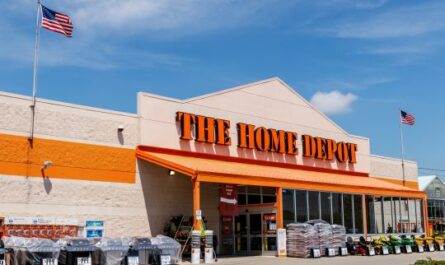President Parker Maricich reflects on factors that led to the demise of both companies
HICKORY, N.C. — Last month’s closure of upholstery manufacturer Our House Designs and its sister company Leathercraft ultimately was the result of a series of challenges that started shortly after the principals acquired the company in early 2020.
The investors group, which included current President Parker Maricich, purchased the business from former owner Carrie Craymer just before the Covid pandemic. This started a series of ups and downs ranging from a short-term ceasing of operations early on during the pandemic to subsequent supply chain disruptions involving key materials such as foam.
This was followed by periods of high demand, then a slowdown at retail that persisted for many months.
The company sought to boost its prospects with the early 2024 purchase of Leathercraft, one of the oldest leather upholstery production companies in the country. Yet this had its own challenges, including integrating the company into the development and manufacturing sides of the business, although for a time it did boost orders from an entirely new line of furniture — at least until orders overall slowed starting around last fall.
“The challenges just kept coming, and they didn’t slow down,” Maricich told Home News Now of the company’s ultimate demise. “We just decided to close it all. Leathercraft definitely had some pluses and negatives and it certainly helped on the order side for OHD. But the world changed and it just made it very difficult. … It just got to the point where everyone is kind of wondering, ‘Is it worth it?’”
Maricich said that the company made the decision to close down around June, handling it as a wind-down over the summer months rather than a sudden closure. As word got out in and around the region, known for its prevalence of upper-middle to upper-end manufacturers, members of its 30-member team who wanted to continue working did find other positions, Maricich said.
As the company produced in the U.S., it did not see much direct impact from tariffs, although importers of fabric and leather certainly were affected.
“I’m sure it had a play in it,” he said of the higher costs of imported materials. “But Covid was our big challenge because we started off on our heels at the beginning of Covid. We had owned the business for two months before we had to shut down. Covid changed everything.
“It started with Covid and then we got into the foam crisis and then after the foam crisis we got into the election. We just had a number of once-in-a-lifetime challenges.”
Having stopped taking orders this past June, the company has produced and shipped all orders from its Hickory manufacturing facilities. As it winds down completely over the next few weeks, it is focusing on paying the last of its vendors for their services.
While operating in a series of unfortunate circumstances, Maricich gave credit to the employees who stayed on until the end applauding them for their help in winding things down. This allowed the company to ship the last of its product before closing its facilities by the end of August.
“Luckily our employees helped us to satisfy the orders until the end, and the companies around town stepped up and everybody was offered a position pretty quickly,” Maricich said of the transition that continues with the payment of debts owed. “We are just trying to go out, I guess, in the best way possible.”




